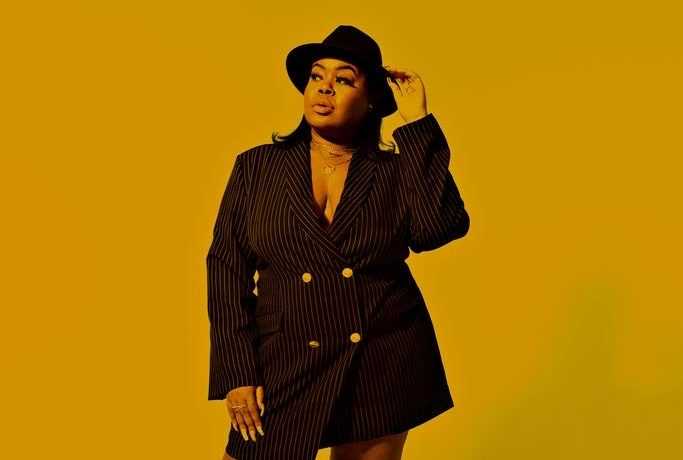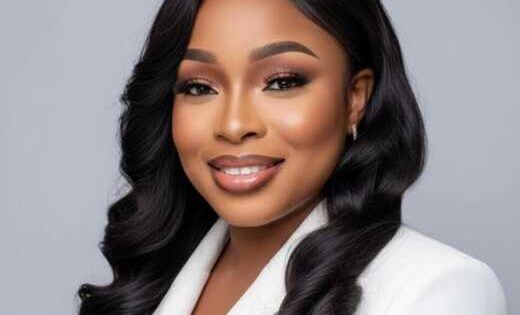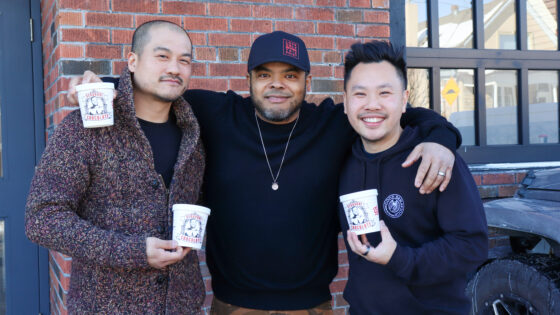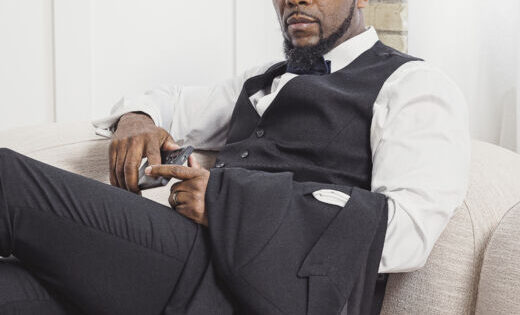on
BY JANIECE CAMPBELL
“People will say that you aren’t perfect. We were all made exactly how we were supposed to be, so I don’t understand how we couldn’t be perfect.” Sashagai Ruddock
In a world full of detox teas, weight loss supplements and waist trainers, plus-sized women tend to feel out of place. With social media flooded with stereotypically attractive women, it isn’t uncommon for many to struggle with identity issues. In today’s superficial society, conventional beauty standards are no match for “Toronto’s Fluffy.”
She has many titles under her belt. Entrepreneur. Fashion blogger. Body-positive influencer. Self-love coach.
In the age of social media likes becoming a form of validation, Sasha strives to assure people of their importance and perfection. “I like to see the change, that lightbulb moment when they realize, woah! I’m worth it. I’m attractive. I’m gorgeous. I’m beautiful. I’m sexy.”
Unapologetically embracing her beauty, Sasha had experienced bullying like many others growing up. Though unlike most, she held her head high and chose not to let that phase her.
Around twelve years ago was when it all started.
Her online presence began with her original blog, Deliciously Fat. She had many ambitions and decided that she needed to rebrand into something bigger and better. “I remember hearing quotes of people saying how nobody wants to see plus-sized women on the runway and how women want to see what they want to be, not what they are. I remember that sitting with me. I couldn’t believe there were people like that in the media.”
Thus, while sitting in her Brampton kitchen, the handle @flawsofcouture was born.
“I was going through possible names and thinking, okay, they think that we’re flawed people and that’s why we don’t deserve to be on the runway. Runways are made for couture and couture is made for a certain kind of body… but that shouldn’t be true. If you’re a designer, you should be able to make clothes for everyone. The average size of a woman in Canada and America is about a 16-18. How is it that you’re overlooking the majority of women and saying that they don’t belong?”
She continues.
“Since they think we’re flawed, then I’ll represent the flaws of couture. I came up with the name, thinking it would just be a light and fluffy name for the blog. But over ten years later, it’s much more than that.”
Born in Canada to Jamaican parents, Sasha would be incomplete without the love of her family. Blessed to be raised by loving and supporting parents, she says they are her “goal, reason, and why.” With her parents still working, she says she will not rest until they can.
A quick scroll through her Instagram page will show you that this woman’s fashion is fearless. With a wide range of colourful outfits and hairstyles to pair with, it’s no wonder she got partnerships with reputable brands like FashionNova and ASOS. As a family-oriented individual, it only made sense that her first fashion inspiration came from none other than her father.
“I definitely get it from my dad. He was the first fashion icon I’d ever seen. Until this day, he can out dress anybody! He’s the sharpest man I’ve ever come across.”
Her love for fashion brought her to be the founder of her own brand, FOC Apparel, an inclusive clothing line ranging from sizes small to 5X. Presenting streetwear clothing, this brand goes against the typical attire for curvy girls.
“When I was younger, I was bigger than a lot of my friends. I would always wear long-sleeves and cover up or want to put a t-shirt on in the pool. I know what that life was like and seeing so many girls live that life today. I just want to free them! FOC Apparel is a way of freeing them from that version of themselves and allowing them to realize that their bodies are beautiful. They should be able to show it off just the same.”
A clothing line that is absolutely not for the faint of heart, she offers several variations of bikinis, bandeaus, cropped sweaters and shirts.
“We don’t want to dress like grandparents! It’s insane to me that in 2020, people still think that plus-sized women need to be covered up. This line is for the girl who’s ready to let go of people’s opinions and embrace her body.”
Along with her outstanding fashion brand, Sasha is co-founder of Nu Ave Nails, a pop-up nail shop and training school featuring all black nail technicians. She, along with her business partner, noticed a worldwide trend of black women being treated terribly in non-black owned salons.
“Black women are always doing long, inventive nails and dropping cash – there is no other race that spends as much money as black women in nail salons. Yet, we’re disrespected on the highest regard. Why should we continue to subject ourselves to this kind of treatment when we’re the ones who carry the power? So, we created a shop, took appointments and wined and dined the ladies, as they should be.”
While promoting the importance of loving yourself, Sasha also uses her platform as a safe space for open dialogue surrounding relationships and sexual health. With segments like #HealthyHoe and #LiveAfterDark, she encourages tough conversations that society does not have enough of.
“I feel like women should be liberated and happy to have sex. It should be okay and open to speak about sex. It’s the way to be the healthiest version of yourself.”
As she enters her 30s, Sashagai Ruddock is only just getting started. Being the voice for those who are too timid, she wholly represents what it is to be confident and continues to be an inspiration for many. She aspires to live her best life with zero regrets.
“My advice for people is to free yourself from people’s opinions. I want to live a life where I can look back and say “I did everything! I was serving looks, I was feeling myself, skin was glowing, fupa and all.”
Stay in the loop with exclusive news, stories, and insights—delivered straight to your inbox. No fluff, just real content that matters. Sign up today!














Fifidi
October 13, 2020 at 10:43 am
it really opened me up after listening to your interview on CBC october 12.